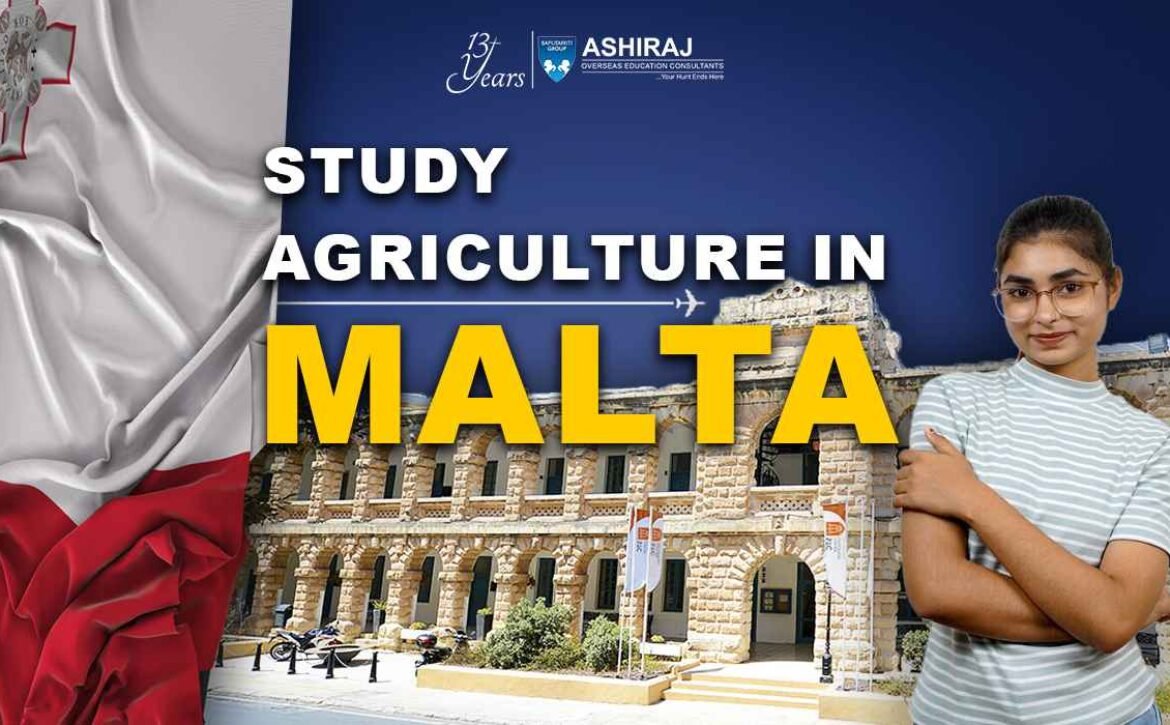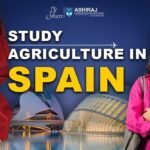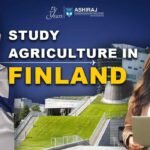
Agriculture in Malta
Agriculture in Malta represents a unique blend of traditional practices and modern challenges due to the island nation’s small size and arid climate. Despite its limitations, Malta’s agricultural sector plays a crucial role in the country’s economy and cultural heritage. Historically, agriculture in Malta has focused on citrus fruits, vegetables, and grains, adapting farming techniques to suit the Mediterranean climate. However, in recent decades, there has been a shift towards more specialized crops such as grapes for winemaking and olive trees for oil production. This evolution reflects Malta’s efforts to maximize agricultural output while conserving its natural resources and adapting to global market demands.
Today, agriculture in Malta faces significant challenges including water scarcity, land constraints, and the impacts of climate change. The Maltese government has implemented various initiatives to support sustainable agriculture, including subsidies for modern farming technologies and incentives for environmentally friendly practices. Despite these challenges, Malta continues to uphold its agricultural traditions while embracing innovation to ensure the sector’s resilience and contribution to the nation’s economy and food security.
Why to Study Agriculture in Malta?
- Unique Mediterranean Environment: Studying agriculture in Malta offers a firsthand experience in a Mediterranean climate, ideal for learning about cultivation of crops like olives and grapes.
- Rich Cultural Heritage: Malta’s agricultural practices are deeply rooted in its cultural history, providing students with insights into traditional farming methods and their evolution.
- Hands-on Learning Opportunities: The small size of Malta allows for close interaction with local farmers and agricultural businesses, offering practical experiences in sustainable agriculture.
- Government Support: The Maltese government actively supports agricultural education through scholarships, grants, and research funding, fostering a conducive environment for learning and innovation.
- Focus on Sustainability: With increasing global awareness of sustainable practices, studying agriculture in Malta equips students with knowledge in water management, soil conservation, and organic farming techniques.
- Gateway to EU Market: Malta’s membership in the European Union provides students with exposure to EU agricultural policies, market dynamics, and opportunities for agricultural exports.
- Research and Innovation: Universities in Malta emphasize research in agriculture, focusing on developing solutions to challenges such as water scarcity and climate change resilience.
- Career Opportunities: Graduates in agriculture from Malta are well-equipped to pursue careers in agribusiness, environmental consultancy, food technology, and rural development both locally and internationally.
Studying agriculture in Malta not only provides a comprehensive understanding of Mediterranean farming practices but also prepares students for a dynamic career in the evolving global agricultural sector.
Top Universities to Study Agriculture in Malta
University Name | QS World University Ranking 2023 | Type of University | Average Annual Fees | Programs Offered |
University of Malta | Not ranked | Public | EUR 1,500 – EUR 2,500 | Agriculture and Aquaculture, Sustainable Agriculture |
Malta College of Arts, Science and Technology (MCAST) | Not ranked | Public | EUR 1,000 – EUR 2,000 | Agricultural Engineering, Horticulture, Food Science |
Mediterranean Agribusiness School | Not ranked | Private | EUR 3,000 – EUR 4,000 | Agribusiness Management, Sustainable Farming |
Institute of Applied Sciences | Not ranked | Private | EUR 2,000 – EUR 3,000 | Agricultural Management, Viticulture, Agricultural Economics |
L-Università ta’ l-Għaqda Agrikola (LUGA) | Not ranked | Private | EUR 2,500 – EUR 3,500 | Agricultural Science, Organic Agriculture |
Studying agriculture in Malta offers students access to several institutions specializing in various aspects of agricultural education. The University of Malta, a leading public institution, provides programs in Agriculture and Aquaculture, focusing on sustainable practices. Malta College of Arts, Science and Technology (MCAST) offers courses in Agricultural Engineering and Food Science, blending practical training with academic rigor. Private institutions like the Mediterranean Agribusiness School and the Institute of Applied Sciences cater to specific fields such as Agribusiness Management and Agricultural Economics, respectively. L-Università ta’ l-Għaqda Agrikola (LUGA) specializes in Agricultural Science and Organic Agriculture, emphasizing innovative approaches to farming. These universities not only offer diverse programs but also contribute to Malta’s agricultural sector through research and practical applications, preparing students for careers in sustainable agriculture and agribusiness both locally and internationally.
Course Curriculum for Agriculture in Malta
- Foundational Studies: The agriculture curriculum in Malta begins with core courses in Agricultural Science, providing a solid theoretical grounding in crop cultivation, soil science, and plant physiology.
- Specialized Modules: Students delve into specialized areas such as Viticulture, focusing on grape cultivation for wine production, and Horticulture, which covers the cultivation of fruits, vegetables, and ornamental plants suited to the Mediterranean climate.
- Sustainable Practices: Emphasis is placed on sustainable agriculture techniques, including water management, organic farming methods, and integrated pest management (IPM) strategies tailored to Malta’s environmental conditions.
- Agribusiness Management: Courses in Agricultural Economics and Agribusiness Management equip students with skills in farm management, marketing, and agricultural policy analysis, preparing them for roles in the agricultural sector.
- Practical Training: The curriculum incorporates practical training through internships on local farms and research projects, allowing students to apply classroom knowledge to real-world agricultural challenges in Malta.
- Research Opportunities: Universities in Malta encourage research in agriculture, focusing on innovative solutions to local and global agricultural issues, contributing to advancements in sustainable farming practices.
- Field Trips and Workshops: Field trips to agricultural sites and workshops with industry professionals enhance practical learning and expose students to modern agricultural technologies and practices.
Studying agriculture in Malta provides a comprehensive education that combines theoretical knowledge with practical skills, preparing graduates to contribute effectively to the sustainable development of agriculture in Malta and beyond.
Eligibility Criteria & Admission Requirements for MS in Agriculture in Malta
Eligibility Criteria for Agriculture in Malta
- Language Proficiency: Applicants must demonstrate proficiency in English through either IELTS (minimum score of 6.5 overall) or TOEFL (minimum score of 80 iBT).
- Academic Qualifications: Candidates should hold a relevant undergraduate degree in Agriculture, Biological Sciences, Environmental Sciences, or related fields from a recognized institution.
- Standardized Tests: Depending on the university, applicants may need to submit scores from either GRE or GMAT. The typical score requirements are:
Test | Minimum Score |
GRE | 300 |
GMAT | 550 |
- Passport & Student Visa: International students must possess a valid passport and obtain a student visa to study in Malta. Visa requirements may include proof of sufficient funds, acceptance letter from the university, and health insurance.
- Academic Certificates: Transcripts and certificates from previous educational institutions demonstrating academic excellence and fulfillment of prerequisites for the desired program.
- Work Experience: Some programs may require relevant work experience in agriculture or related fields, demonstrating practical knowledge and skills applicable to the program.
Meeting these eligibility criteria ensures that prospective students are adequately prepared academically and linguistically to pursue studies in agriculture in Malta, fostering a diverse and skilled cohort capable of contributing to the agricultural sector in Malta and beyond.
Documents Required for Studying Agriculture in Malta
- Passport: A valid passport with a minimum validity of six months beyond the intended period of stay in Malta.
- Letters of Recommendation (LOR): Two letters of recommendation from professors or employers highlighting the applicant’s academic or professional achievements and suitability for the program.
- Statement of Purpose (SOP): A well-written statement outlining the applicant’s academic background, career goals, reasons for choosing agriculture in Malta, and how the program aligns with their aspirations.
- Curriculum Vitae (CV): A comprehensive CV detailing educational qualifications, work experience, research projects, publications (if any), and extracurricular activities relevant to agriculture.
- Official High School Transcripts and Certificates: Certified copies of transcripts and certificates from high school demonstrating successful completion of secondary education.
- Work Experience Certificate: If applicable, a certificate verifying relevant work experience in agriculture or related fields, showcasing practical skills and knowledge.
- Proof of Financial Resources: Evidence of sufficient funds to cover tuition fees, living expenses, and other costs during the study period in Malta. This may include bank statements, sponsorship letters, or scholarship awards.
Submitting these documents ensures that applicants meet the requirements for admission to agriculture programs in Malta, facilitating a smooth application process and enhancing their chances of securing a place in their desired program.
Admission Process for Agriculture in Malta
- Research and Choose Programs: Explore universities in Malta offering agriculture programs. Consider factors such as curriculum, faculty expertise, and research opportunities.
- Check Eligibility Criteria: Review admission requirements including academic qualifications, language proficiency (IELTS or TOEFL), and standardized test scores (GRE or GMAT).
- Prepare Required Documents: Gather necessary documents including passport, academic transcripts, letters of recommendation (LOR), statement of purpose (SOP), curriculum vitae (CV), and proof of financial resources.
- Submit Online Application: Complete the university’s online application form. Upload all required documents and pay the application fee, if applicable.
- Wait for Admission Decision: Universities typically review applications and notify applicants of their admission status within a few weeks to months. Check application portals or email for updates.
- Acceptance and Visa Process: Upon receiving an offer of admission, accept the offer and proceed with the visa application process. Prepare additional documents such as health insurance and accommodation arrangements.
- Arrival and Orientation: Plan your travel to Malta. Attend orientation sessions organized by the university to familiarize yourself with campus facilities, academic resources, and student services.
- Begin Studies: Start your agriculture program in Malta. Attend classes, participate in practical sessions, and engage in research projects to enhance your academic and professional skills.
Following these steps ensures a systematic approach to applying and securing admission to agriculture programs in Malta, preparing students for a rewarding educational experience in the Mediterranean region.
“Education is the most powerful weapon which you can use to change the world.”
Nelson Mandela
Cost of Agriculture Course in Malta
- Tuition Fees: Average annual tuition fees for agriculture programs in Malta range from EUR 1,000 to EUR 4,000, depending on the university and program level.
- Accommodation: Renting a room or shared apartment in Malta typically costs between EUR 300 to EUR 700 per month, depending on location and amenities.
- Living Expenses: Monthly living expenses including food, transportation, and personal expenses average around EUR 600 to EUR 800, varying based on lifestyle choices.
- Books and Supplies: Budget for books, study materials, and lab supplies which may cost approximately EUR 200 to EUR 400 per year.
- Health Insurance: International students are required to have health insurance, costing around EUR 300 to EUR 600 per year, depending on coverage and provider.
- Miscellaneous Costs: Additional expenses such as visa fees, travel, and leisure activities should also be considered, typically totaling EUR 1,000 to EUR 2,000 annually.
Understanding the cost of studying agriculture in Malta helps prospective students plan their finances effectively. Scholarships, part-time work opportunities, and student discounts can help mitigate expenses, ensuring a manageable and enriching educational experience in Malta’s vibrant academic environment.
Scholarships for Agriculture Courses in Malta
Scholarship Name | Amount | Application Deadline | Eligibility Criteria |
Malta Government Scholarships | EUR 5,000 – EUR 10,000 | March 31st | Open to Maltese and EU nationals pursuing agriculture. |
University of Malta Scholarships | Varies | May 15th | Available for outstanding academic performance in agriculture programs. |
Erasmus+ Scholarships | Varies | February 1st | Offers funding for international students studying agriculture in Malta. |
Mediterranean Agribusiness School Scholarships | EUR 3,000 – EUR 5,000 | June 30th | Merit-based scholarships for students at the Mediterranean Agribusiness School. |
MCAST Scholarships | Varies | September 1st | Financial aid for students pursuing agricultural engineering and related fields. |
Scholarships play a crucial role in financing education in agriculture in Malta, offering financial assistance to deserving students based on academic merit, nationality, and financial need. Prospective applicants should check specific eligibility criteria and deadlines for each scholarship opportunity to maximize their chances of securing funding for their studies in Malta.
Career Opportunities After Agriculture in Malta
Job Profile | Average Salary (EUR) | Description |
Agricultural Scientist | 25,000 – 35,000 | Conducts research, develops new farming techniques, and improves crop yields. |
Farm Manager | 20,000 – 30,000 | Oversees daily operations, manages staff, and ensures efficient farm production. |
Agronomist | 25,000 – 35,000 | Advises farmers on soil management, crop rotation, and pest control methods. |
Food Technologist | 22,000 – 32,000 | Develops and tests new food products, ensuring quality and safety standards. |
Agricultural Engineer | 28,000 – 38,000 | Designs agricultural machinery, irrigation systems, and structures for efficiency. |
After completing agriculture studies in Malta, graduates can explore diverse career opportunities in agricultural science, management, technology, and engineering sectors. These roles offer competitive salaries ranging from EUR 20,000 to EUR 38,000 annually, depending on experience, qualifications, and specific job responsibilities. Employment prospects are promising, with opportunities in local farming enterprises, research institutions, agribusiness companies, and government agencies focused on agricultural development and sustainability. Graduates equipped with practical skills and theoretical knowledge from Malta’s agricultural programs can contribute effectively to enhancing agricultural productivity and sustainability, supporting the nation’s agricultural sector and global food security initiatives.
Frequently Asked Questions About Agriculture in Malta
Malta primarily cultivates citrus fruits such as oranges and lemons, along with tomatoes, potatoes, and grapes for winemaking.
Yes, Malta has institutions like the University of Malta and the Mediterranean Agribusiness School offering specialized agriculture programs.
Graduates can pursue careers as agricultural scientists, farm managers, agronomists, food technologists, and agricultural engineers.
Yes, agriculture contributes to Malta’s economy and cultural heritage despite its small size and arid climate.
Yes, scholarships like Erasmus+ and university-specific awards are available based on merit and financial need.
Malta offers undergraduate and postgraduate programs in agriculture, focusing on sustainable practices and modern farming techniques.
International students typically need to demonstrate proficiency in English through tests like IELTS or TOEFL.
Applicants need to submit documents such as transcripts, letters of recommendation, a statement of purpose, and proof of financial resources.
The cost includes tuition fees ranging from EUR 1,000 to EUR 4,000 per year, plus living expenses and other incidental costs.
International students must apply for a student visa after receiving an acceptance letter from a Maltese university, demonstrating sufficient funds and health insurance coverage.




